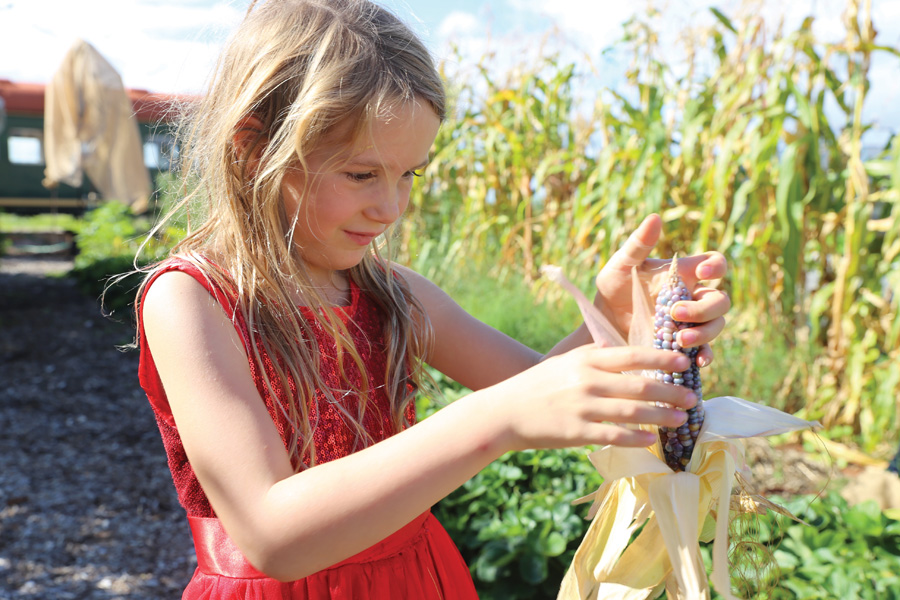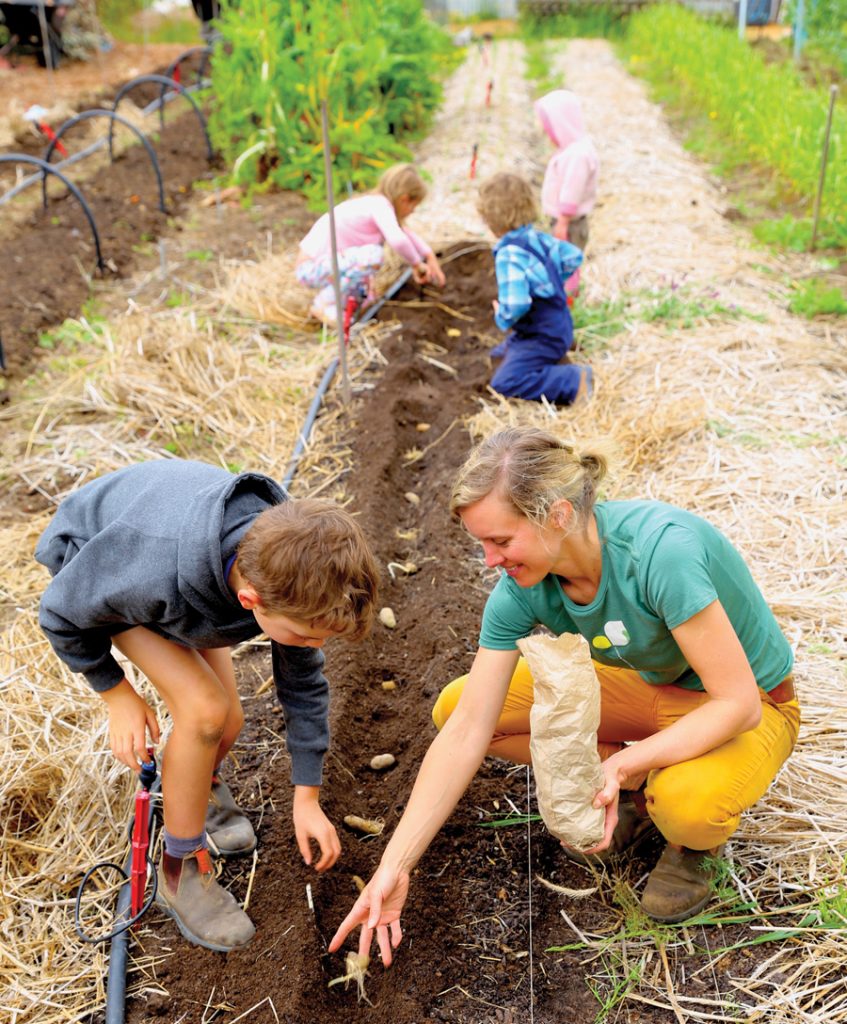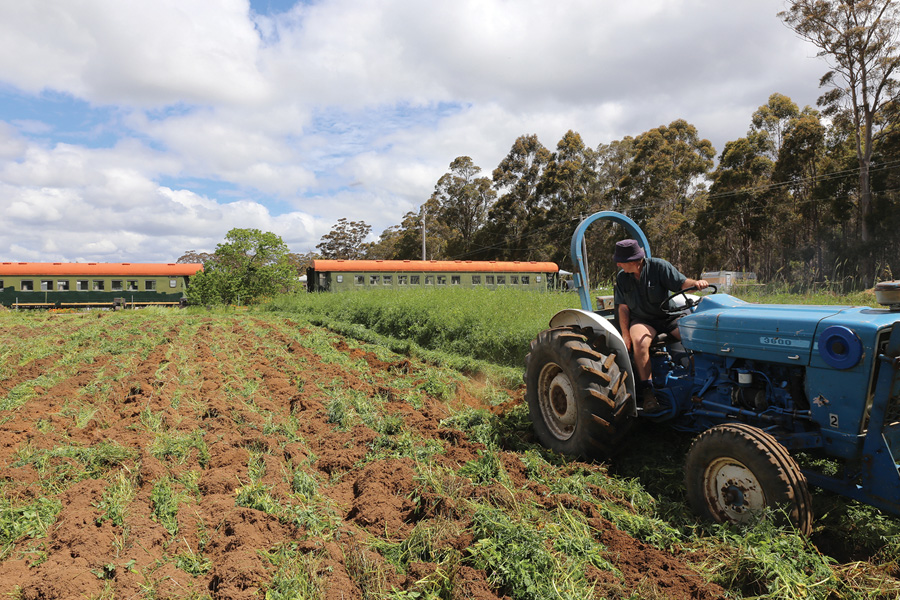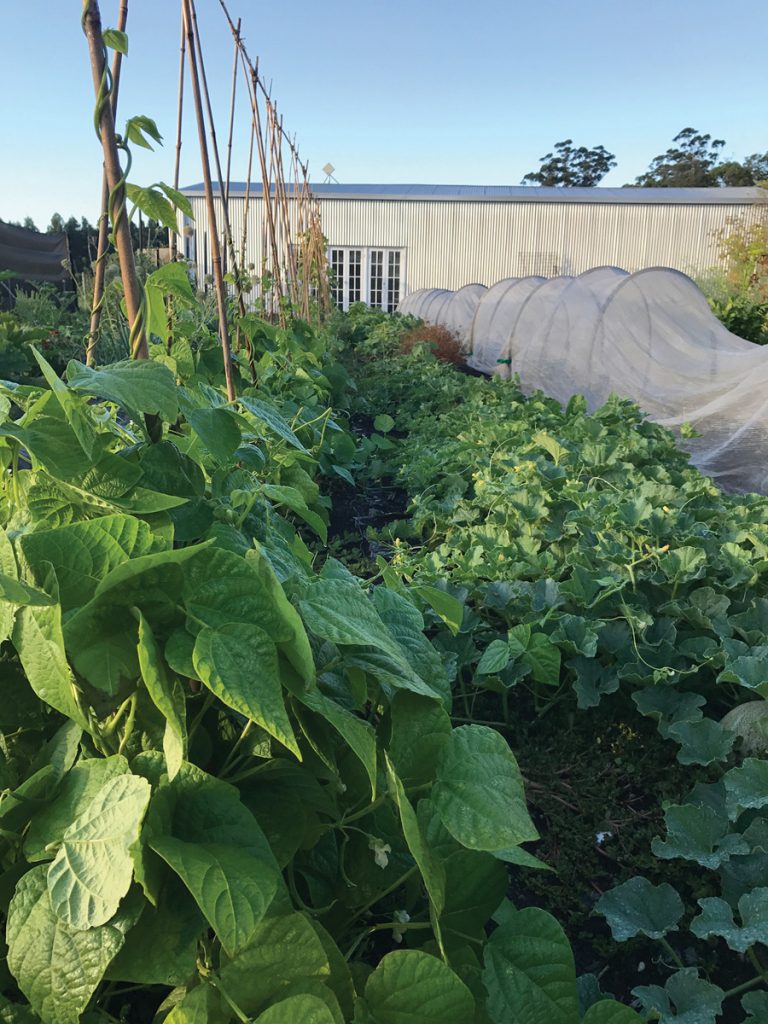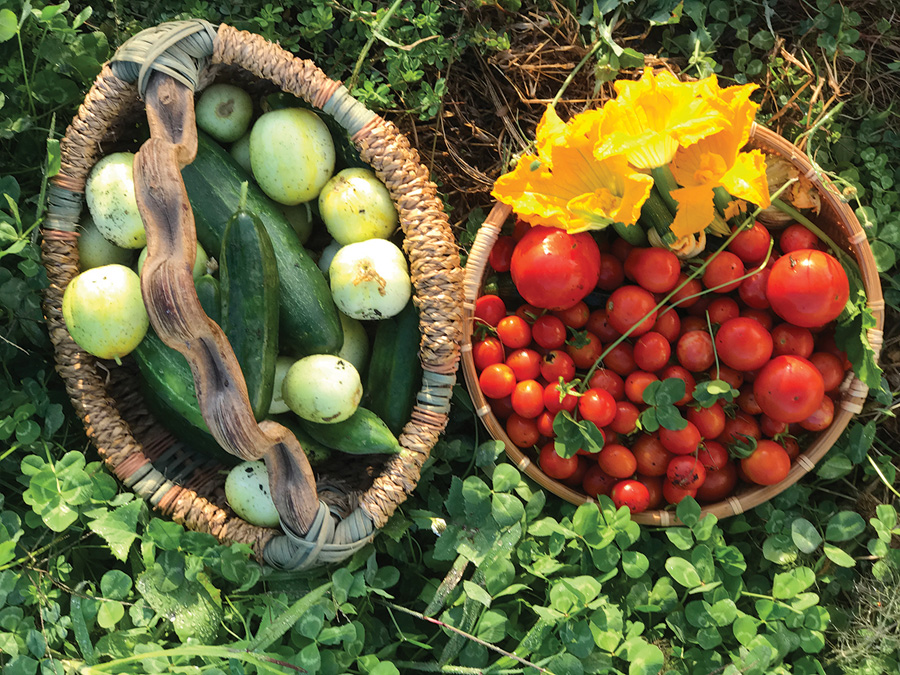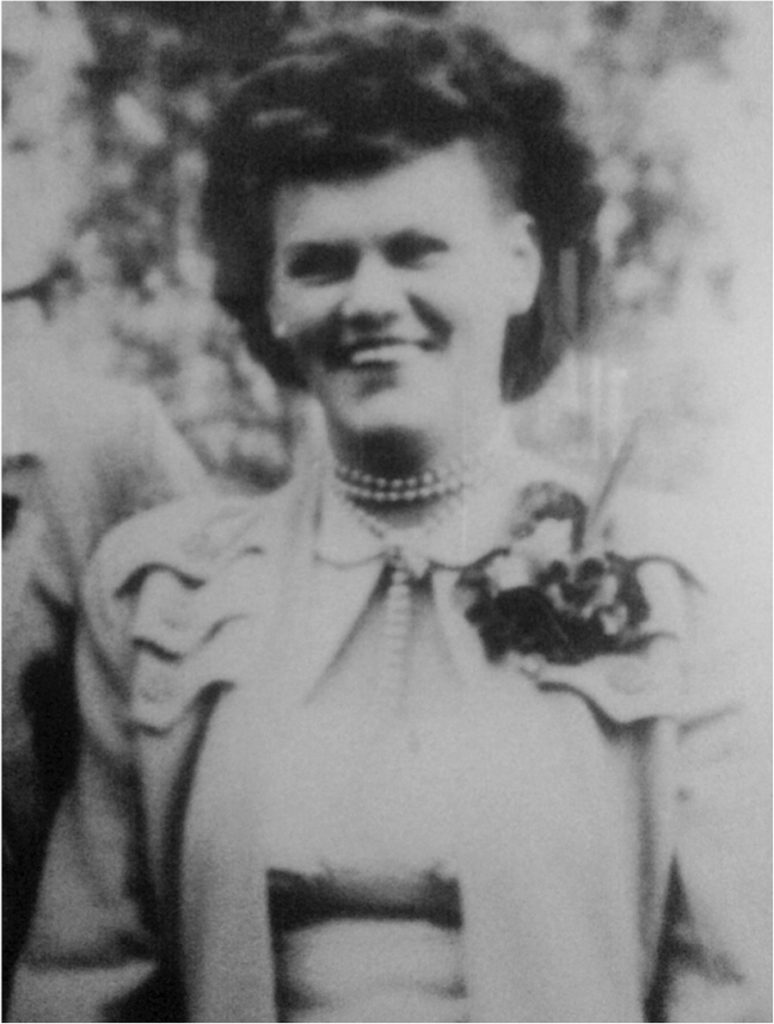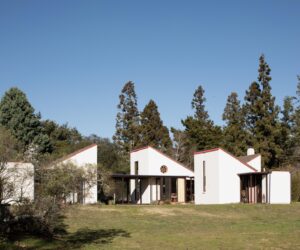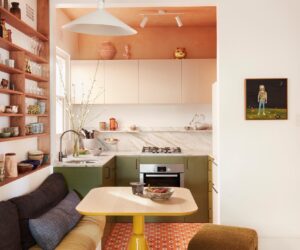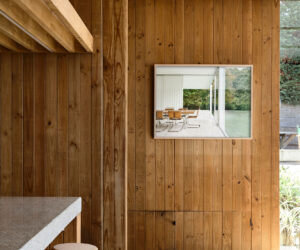The Family Business
A descendant of two pioneering Western Australian farming families, Lucinda Giblett proves that the apple doesn’t fall far from the tree.
At Stellar Violets, with its hazy spring light, flowering almond trees and full baskets of oranges, it’s hard to believe that just five years ago, nothing grew here, except buffalo grass.
For its creator Lucinda Giblett, establishing a social enterprise in her hometown of Manjimup, in the great southern region of Western Australia, was a way of sharing a landscape that has nourished her family for five generations.
The name is a combination of both her grandmothers’ given names, and as Lucinda says, “It’s a name that comes only from here, not anywhere else, unlike, say, a fast food restaurant, which could be anywhere. Equally it seeks to honour the resilient, pioneering matriarchs who have come before me.”
The story began in 2012 when Lucinda returned from a couple of years of travelling and discovered that her father, Harvey, who heads Newton Orchards, the family business, was trialling organic apples on a recently acquired property, which happened to come with a run-down cottage – which Lucinda suggested she might live in.
Since then Lucinda has drawn on her considerable talent for connecting people and ideas to create the Stellar Violets Life Library, Living Museum and Gallery. The Life Library includes not only books about sustainable living but also stories from local people, and a planned seed bank, while the Living Museum encompasses the enterprise as a whole, from its plants and chickens to the energy-efficient dwellings, vast compost heap and 100 per cent electric ute.
“The ‘Living Museum’ descriptor is important to me as it’s not a collection of things that we simply look at. Rather, we engage with our Living Museum exhibits, they are in use, they enable us to function,” explains Lucinda. Along with the cottage, which Lucinda and her partner are gradually renovating, an existing shed has been converted into a reception room, yoga studio and event space. A new skillion-roofed building will eventually become an events kitchen, and two vintage train carriages, originally from the Hotham Valley tourist railway, provide oddly familiar meeting places.
“The train carriages were the ideal solution to our need for shelter in a climate that veers between being very hot and very cold, and link in with our ideas about preserving heritage,” says Lucinda. “Eventually one will be used for social events like pop-up dinners and the other will be a ‘quiet carriage’ – holding the Life Library and a self-contained apartment for visiting artists and authors.”
Stellar Violets is also a picturesque venue for a busy calendar of community events, including gardening workshops, author talks – including acclaimed indigenous author Bruce Pascoe – art exhibitions and seasonal feasts that celebrate the region’s abundant produce. Even cyclists passing by are welcome to stop in for a warm shower.
And if all that sounds hectic, it doesn’t seem to faze Lucinda, who radiates the glowing health and boundless energy you’d expect of a farmer’s daughter. “Gardening is in my blood. My father always says he’s never worked a day in his life, because he enjoys what he does, and I’m the same. He definitely modelled loving what you do.”
She shares with her father a love of enterprise, of trying new things, and of growing, be that indigenous bunya nuts, spring tulips, rare crab apples, blood oranges or a single pale pink peony bud that she is watching with bated breath.
“Mum was the gardener in our family, a passion she shared with her sisters. When my Aunt Carol saw this peony bud, she laughed and told me the story of how Mum had tried for years to grow them. She suggested pouring ice on the soil, so after we hosted our Bruce Pascoe event I was groping around in the dark pouring the leftover ice from the esky onto it.”
A central aim of Stellar Violets is to provide a site for people to learn about organic gardening. “We run volunteer garden projects and classes. A lot of it is about making a philosophical shift into an approach where there are no quick fixes. You foster life, fertility and resilience in the soil over a long period of time.”
Both the garden and the neighbouring apple orchard are living examples of sustainable food production. Calendula and apple mint now grow between the trees to deter insects, along with rows of garlic. “It’s a good companion plant for apples and provides another income stream, making it economically as well as environmentally sustainable.”
Going forward, there’s a fungi exhibition due to open in the reception space, a Friday nature play group for local preschoolers, and an organic gardening workshop in the morning with Brent Burns from Landsave Organics.
“We like the idea of small intimate workshops and gatherings, trying to get the right people in so we aren’t doing everything ourselves. We are allowing the project to shape us as much as we try to shape it.”
